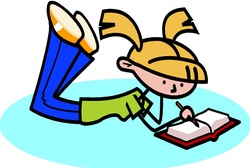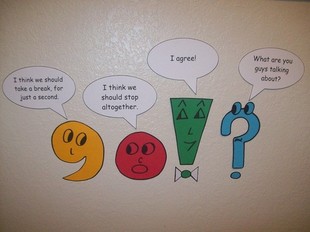
*Every new speaker gets their own paragraph
“Okay, I think can remember that.” William said.
“Great, just keep reading and you will learn a lot more!”
responded Diana.
*Also, when two people are talking, you don’t need to attribute everything that is said. The reader should be able to remember who said what.
“I guess that makes sense.” William said, then opened his notebook and started writing. “So, what’s
next?”
*Remember to put quotations (“ “) around words that are spoken aloud and italicize words that are thoughts.
“That’s a great tip!” I better start writing this all down.
*Don’t forget that all punctuation goes INSIDE quotation marks.
“Okay, I will remember that.”
*Finally, if you feel like you have overused the verb SAID you can always try different verbs such as “replied,” “asked” or “responded.” Choose whatever makes the most sense for the dialogue you are writing.


 RSS Feed
RSS Feed